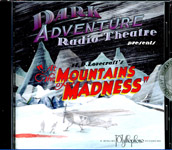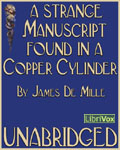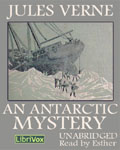
 A Bite of Stars, a Slug of Time, and Thou is a podcast radio show (on Resonance FM 104.4 FM in London, U.K.) that you are absolutely going to love. The hosts, Elisha Sessions and Mark Sinker, along with various guests, talk about Science Fiction short stories from “SF’s Golden and Silver Ages.” Covering stories from 1927 to 1965, these are deep, articulate, and knowledgeable discussions, along with, in at least a couple of cases, complete, unabridged readings! Planet shaking stories, with intelligent commentary – I absolutely love it!
A Bite of Stars, a Slug of Time, and Thou is a podcast radio show (on Resonance FM 104.4 FM in London, U.K.) that you are absolutely going to love. The hosts, Elisha Sessions and Mark Sinker, along with various guests, talk about Science Fiction short stories from “SF’s Golden and Silver Ages.” Covering stories from 1927 to 1965, these are deep, articulate, and knowledgeable discussions, along with, in at least a couple of cases, complete, unabridged readings! Planet shaking stories, with intelligent commentary – I absolutely love it!
Episode 1 – Who Goes There?
By John W. Campbell; Read by Elisha Sessions
1 |MP3| – 1 Hour [READINGS OF CHAPTERS 2 & 4]
Sarah Clarke joins Mark Sinker and Elisha Sessions to discuss John W. Campbell’s “Who Goes There”, a 1938 science fiction novella about ice-bound scientists confronted with an alien who can become them. Elisha reads from the book in case you haven’t. As originally broadcast on Resonance FM 104.4 FM in London on April 1, 2008.
Episode 2 – A Pail Of Air
By Fritz Leiber; Read by Elisha Sessions
1 |MP3| – 1 Hour [ABRIDGED]
Tom Ewing joins Mark Sinker and Elisha Sessions to discuss Fritz Leiber’s “A Pail of Air”, written in 1951. It’s a short story about a kid, some rugs, and an Earth so cold that helium crawls. Will it crawl onto YOU? Elisha reads from the story in case you haven’t.
Episode 3 – The Segregationist
By Isaac Asimov; Read by Elisha Sessions
1 |MP3| – 1 Hour [???]
Alan Trewartha joins Mark Sinker and Elisha Sessions to discuss “Segregationist”, one of Isaac Asimov’s famous robot stories from 1967. Elisha reads from the story in case you haven’t.
Episode 4 – Beyond the Reach of Storms
By Donald Malcolm; Read by Elisha Sessions
1 |MP3| – 1 Hour [???]
Martin Skidmore joins Mark Sinker and Elisha Sessions to discuss the first space-travel story of the series, and the first truly obscure find, “Beyond the Reach of Storms” by Donald Malcolm.
Episode 5 – The Red Brain
By Donald Wandrei; Read by Elisha Sessions
1 |MP3| – 1 Hour [UNABRIDGED?]
Dave Queen joins Mark Sinker and Elisha Sessions to talk about the outrageous 1927 short story “The Red Brain”, written by Donald Wandrei when he was supposedly 16 years old.
Episode 6 – A Sound of Thunder
By Ray Bradbury; Read by Elisha Sessions
1 |MP3| – 1 Hour [UNABRIDGED]
Al Ewing joins Mark Sinker and Elisha Sessions to talk about “A Sound of Thunder” by Ray Bradbury, the famed 1952 story about a dinosaur safari gone wrong. Lots of other Bradbury and time travel tales get a look in.
Episode 7 – The Tactful Saboteur
By Frank Herbert; Read by Elisha Sessions
1 |MP3| – 1 Hour [UNABRIDGED?]
Ken Hollings joins Mark Sinker and Elisha Sessions to talk about “The Tactful Saboteur” by Frank Herbert, a tale of civil servants and their multi-phase sexual life cycles from 1964.
Episode 8 – Build Up Logically
By Howard Schoenfeld; Read by Elisha Sessions
1 |MP3| – 1 Hour [UNABRIDGED?]
Kat Stevens joins Mark Sinker and Elisha Sessions to talk about Choose Your Own Adventure books, speaking with animals, and “Build Up Logically”, an unclassifiable short story written in 1950 by Howard Schoenfeld. It’s about two men who can summon the entire universe from thin air but spend most of their time at parties.
Posted by Jesse Willis


 Back in February 2007 Robert A. Graff, of Rochester, NY,
Back in February 2007 Robert A. Graff, of Rochester, NY,



